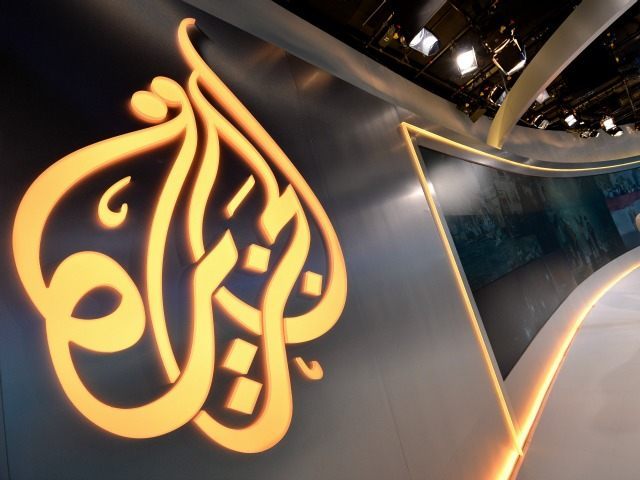The United Nations High Commissioner on Human Rights, Zeid Ra’ad al-Hussein, has denounced the demand for Qatar to shut down its Al-Jazeera news network as an “unacceptable” attack on freedom of expression.
Spokesman Rupert Colville said the commissioner is “extremely concerned” by the demand.
“Whether or not you watch it, like it, or agree with its editorial standpoints, Al Jazeera’s Arabic and English channels are legitimate, and have many millions of viewers. The demand that they be summarily closed down is, in our view, an unacceptable attack on the right to freedom of expression and opinion,” said Colville, as quoted by Reuters
Al-Jazeera itself quotes Colville, calling the demand “extraordinary, unprecedented, and clearly unreasonable.” He warned that if Qatar is pressured into closing Al-Jazeera, “it would open a Pandora’s Box of powerful individual states or groups of states seriously undermining the right to freedom of expression and opinion in other states, as well as in their own.”
The demand to close Al-Jazeera was one of 13 conditions presented to Qatar by a coalition including Saudi Arabia, Egypt, and the United Arab Emirates last week in order to restore normal diplomatic and economic relations. Several other Qatar-based media outlets and websites were also included in the demand but Al-Jazeera is by far the largest and is widely judged to be the most-watched network in the Middle East.
The other Arab states accuse Al-Jazeera of supporting extremists and working to destabilize the governments of Qatar’s neighbors.
Al-Jazeera responded to the demand for its termination with an open letter that noted journalistic freedom and free speech “may be an accepted norm in many parts of the world, but it is a right which is so often challenged for political gain in parts of the Arab world.”
The open letter insisted on Al-Jazeera’s commitment to “storytelling, to balanced journalism, and to finding and covering stories.” The network cited the size of its loyal audience as a “testament to the quality of our work” and insisted it reported on events such as the 2011 “Arab Spring” protest, rather than causing them.
“The attempt to silence Al-Jazeera is an attempt to silence independent journalism in the region, and to challenge everyone’s freedom to be heard and to be informed. This must not be allowed to happen,” Al-Jazeera wrote.
Writing at the Washington Post, Palestinian journalist Daoud Kuttab gingerly admits that Al-Jazeera has “overreached” and “slipped somewhat in its credibility and neutrality” after the Arab Spring, citing, in particular an Egyptian affiliate that “was often viewed as a mouthpiece of the Muslim Brotherhood rather than a proper professional outlet.”
Notwithstanding this caveat, Kuttab agrees with Al-Jazeera’s contention that its popularity testifies to the overall quality of its work, insists the network is not as one-sided as its detractors claim, and makes a more general appeal to Middle Eastern nations to “stop demonizing journalism.”
Humanitarian groups and free-speech advocates have responded negatively to the proposed Al-Jazeera shutdown. Reporters Without Borders said it was “very disturbed” by the demand, calling it an “unacceptable act of blackmail.”
The statement from Reporters Without Borders acknowledges criticisms of Al-Jazeera for “acting as Qatar’s mouthpiece,” but the organization’s Middle East chief, Alexandra El Khazen, said the attempt to censor Qatari media “constitutes a grave attack on press freedom and pluralism, and the right of access to information in the region.”
“The targeted media outlets must be able to exist freely, without being forced to fall in with the policies of neighbouring countries, which cannot by any stretch of the imagination be regarded as models of media freedom, as models to be followed,” said El Khazen, echoing the U.N. Human Rights Commission’s fears that a Pandora’s box of more aggressive censorship would be opened in the Middle East if Al-Jazeera is muzzled.
Human Rights Watch expressed similar concerns at the beginning of the Qatar crisis, even before the virtual blockade against the emirate was imposed, noting that Egypt, Jordan, Saudi Arabia, and the UAE were taking steps to shut down and block various Qatari media outlets.
“The media need protection from political interference, not official muzzling. The offending governments should demonstrate they understand and respect the role of media outlets, even those they don’t agree with,” said HRW Middle East Director Sarah Leah Whitson.
Despite these denunciations from the United Nations and press freedom advocates, CNN quotes several analysts who think Qatar might very well comply with the demand to close Al-Jazeera.
“Qatar’s Emir first gesture of good will likely be the shutting of Al Jazeera TV network entirely, which could happen in months if not weeks,” commentator Sultan Al Qassemi predicted.
CNN quotes Simon Henderson of the Washington Institute’s Gulf and Energy Policy Program predicting that “many Arab governments would prefer Al-Jazeera to simply disappear,” which would suggest the Emir of Qatar will be privately advised to comply with this demand by the leaders of nations beyond those who made it.
For that matter, support for the network from beyond the Middle East might be muted by queasiness over some of its excesses, from slanted coverage of the Iraq War to support for the Muslim Brotherhood. As CNN points out, the network has already been blocked in some of the nations seeking to close it down. If it survives, it may be obliged to make some significant changes in its editorial policies. That would likely turn off some of the loyal audience it proudly boasts of, and stoke those concerns about government interference in media growing even worse across the Middle East.

COMMENTS
Please let us know if you're having issues with commenting.